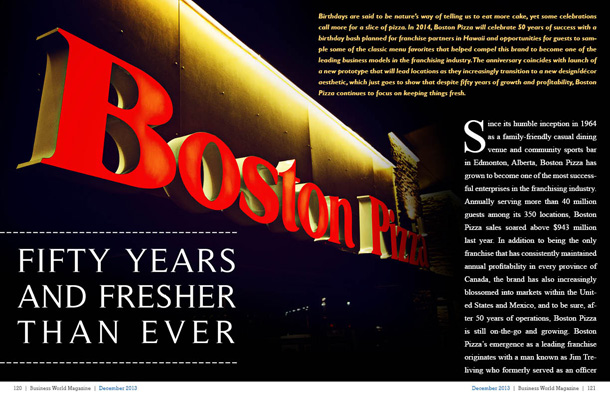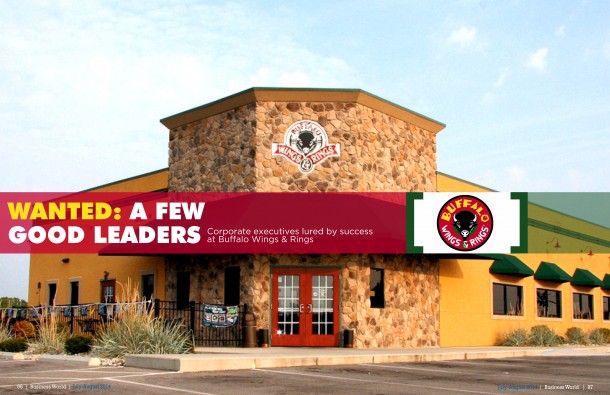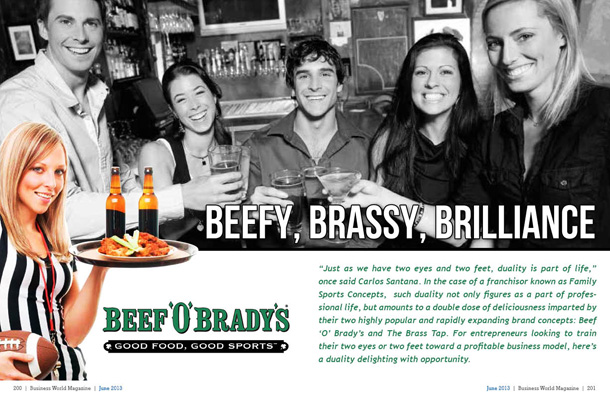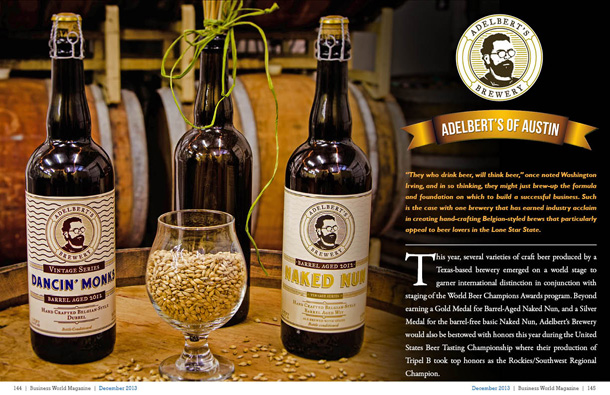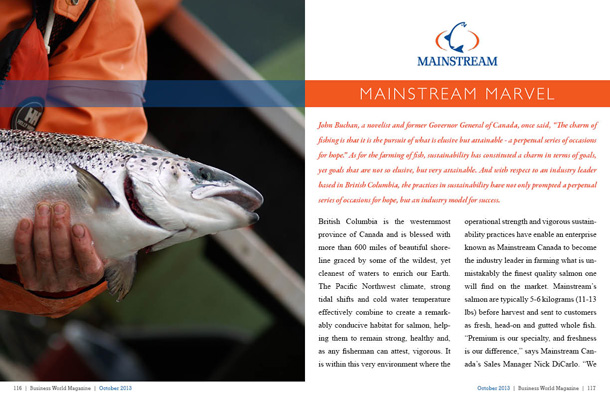
Saving the future of rural Australia
T&R Pastoral speaks of its promise in all of its publications, and it’s something that they consider as part and parcel of the trade – that promise is the promise of Total Reliability. The company was started by Alan Turner and Bob Rowe, and then later was reformed with Chris Thomas and Bob. The T&R name luckily was retained and the Thomases and Rowes endured and grew stronger through their 35 year partnership before amicable deciding to go their separate ways in 2008. Now under the full control of Chris and with son Darren Thomas as CEO, T&R has emerged even stronger than before. T&R now describes itself as the largest lamb and mutton exporter in Australia, with a product range that also includes high quality chilled grain and grass-fed Beef, Lamb, Mutton, Goat, and other by-products for the domestic and international markets.
T&R has also positioned themselves to enter the US market after acquiring a 50 per cent stake in the US based Foodcomm. Foodcomm is the largest importer of Australian chilled beef and lamb, and the new partnership allows T&R greater entry into the dynamic market right to the end users such as leading retail chains Costco, Wegmans and Publix.
Over the years the T&R name has come to mean more than the representation of its founder’s surnames, it has come to mean trust and building relationships, represent their commitment to total reliability, and their self described goal to be seen as tenacious and responsible. There are so many ways that T&R has applied new meanings to their two letter standard, and all of them have been achieved since meat processing became the core business in a little more than a decade ago.
T&R originally set forth to provide the Australian market with an expanded ability to compete in the meat exporting industry. They have achieved this and have gone on to being one Australia’s top employers and one of the top 5 meat processors. They now export to more than 80 countries, employ over 2000 people and do business in excess of 1 billion dollars each year.
Chris Thomas, one of the founders of T&R says that he had known since the very beginning that he wanted a future working in the farming industry. “Ever since I was in kindy the farm life appealed to me. I always knew I wanted to work in the rural sector,” he says. Following his passion he spent many of his school holidays on a farm near Wimmera, and then left school at the age of 15 to continue his path. Working at first as a jackaroo at Oakden Hills station, north of Port Augusta, and then doing odd jobs around the region as a rouseabout.
“I remember going to the livestock markets from a very young age,” he says. “I developed a pretty thorough understanding of the business. A typical school holiday trip for us was to go up to Alice Springs to buy stock.” He returned to Adelaide to study wool classing at the Institute of Technology, then landed a job with Coles Brothers as a stock and station agent.
“It was a time that I enjoyed,” he says. “I remember going to the cattle markets at the end of the main street of Mount Barker. And look at the town now! Back in the 1970s you could buy prime Hills land for $1000 an acre or less.”
Part of T&R Pastoral’s success has been due to their strategic location of their processing plants which gives them access to every continental state in all of Australia.
Branded for success
Since the inception of the company they have instituted several separate brands of their own, including the award winning Murraylands Premium and Clare Valley Gold. Each brand represents both quality and affordability, and it is through this that T&R Pastoral has built its success on. Now, they have entered the retail market with their new Thomas Farms brand. T&R has had a lot of experience making brands that were for supermarkets and chains but now, they are have created one that is shelf ready and directly from their stock. These brands, says the people at T&R Pastoral, have become synonymous with quality, reliability, and overall excellence. This reputation has also elevated the position of Australian meat across the international market. To both Darren and Chris Thomas this is as important as maintaining their brand image, because it reflects well on the entire industry.
“This foray will bring new and grow existing customers,” said Jason Kennedy, T&R Pastoral’s commercial manager. “Our aim of vertical integration will see us very competitive into the future, to the point of opening our own retail outlets,” he says. This means that they will not limit themselves to providing retail products.
“We see food service as a huge opportunity moving forward,” said Kennedy.
Since T&R Pastoral has adopted many of the techniques required for the production of retail products, as well as the experience that will make Thomas Farms a trusted name right from the start. “We aim to be at the forefront of the trends and development, in fact we will be creating trends into the future,” said Kennedy.
Building a name
T&R originally was owned by Alan Turner and Bob Rowe – the original T&R. While Chris Thomas was a buyer for Holbrook Meat, he met the pair. The 1980s where a turbulent time, marked by many mergers and Holbrook Meat became Holco, and acquired T&R. Holco was then bought by Metro Meats. During this time Thomas and Simon and Bob Rowe formed a new company, and as Thomas says, the company was reborn. “It was a very successful relationship between the Rowes and the Thomases. Bob controlled the cattle side of things, while I founded and ran the sheep and lamb side of things. We were processing sheep and lambs in South Australia, New South Wales and Victoria, and sourcing them from New South Wales and Queensland.”
“We started out with three people,” he says. “Bob Rowe, myself and a girl in the office,” he says. T&R Pastoral now employs over 2000 people, in four plants across Australia, and has annual revenues in excess of a billion dollars in a highly competitive global industry.
It was the rebirth of T&R, but instead of Turner and Rowe it became Thomas and Rowe,” says Thomas. “We were a trading operation in a joint venture with Metro Meats. We didn’t own our own abattoir at that stage–we contracted with Murray Bridge, Gepps Cross and Noarlunga.” By 1997 T&R Pastoral moved from a trading company and became a very active in processing and export. Their first plant was an old government owned plant, the SAMCOR Meatworks at Gepps Cross.
“Almost overnight the abattoir went from 30 staff to 230. It was a defining moment,” says Chris Thomas.
T&R has done many things differently from the competition, and this has made them stand out to both customers and investors. One of these things is that T&R do not focus on just one type of meat, but the whole gamut of foodstuffs that the Australian meat market can supply. Chris Thomas says that this is part of their overall vision, one that would see them become “the most sought after supplier of Australian meat at its co-products.” Their services include the ability to lead customers from the point of inquiry right up to the delivery of the final product. This includes support for a company’s brand marketing and ensuring that all the correct documentation is filed so that all of their goods arrive safely and on time. It is their people that help make this happen and Chris Thomas cannot heap enough praise on them. Without the right people doing the job, there would be no T&R.
“We’ve always recognised that people are our number one asset. It’s not the sexiest industry, but our people come to work every day and get the job done,” he says.
New markets and building in an uncertain time
At present T&R has emerged from the economic crisis stronger than ever, with a new target in sight: the United States. With their deal with Foodcomm to take over 50 percent of the company’s operations, Darren Thomas expects this to boost T&R’s already strong portfolio. Darren Thomas joined the firm in 1992 as a livestock buyer, and by 2005 was appointed to the position of CEO. “This represents a major commitment to the Australian livestock industry by T&R and a significant boost to rural Australia and in particular rural South Australia,” he said in an interview earlier this year.
Foodcomm has been one of the leading importers of Australian chilled beef, lamb, and goat over the last 20 years. Greg Bourke said in an interview that the partnership will only mean good things for the American market. “This will give our customers in North America a greater surety of supply,” he said. “T&R has shown the capability, focus, and commitment to food safety required to service the North American market. They have made significant investments in state-of-the-art meat processing facilities,” he also added that T&R has been able to expand its business at a time that other meat businesses have been closing their doors. Right now T&R Pastoral employs about 2000 people at their four plants, and is able to process 750 cattle and 22,000 sheep and lambs per day.
“By taking greater control of our product and working closer with the end users we aim to increase our market share in North America, this in turn will provide a sustainable marketing option for our suppliers of livestock throughout Australia,” said Darren Thomas.
In 2009, T&R Pastoral did not let the declining worldwide markets stop them, instead they did what many smart companies did, they made whopping 45 million dollar investments back into the company. Through this capital investment program they were able to increase their staff numbers as well as their capabilities during the worst of the GFC. At the time of the move Darren Thomas comment that they were “the State’s ninth largest employer and largest private employer in the State and will employ more people in the future.”
“There will also be good opportunities for traineeships and apprenticeships for people in Murray Bridge and the rest of the State,” he added.
With these funds T&R Pastoral were able to double the size of their cold storage capacity, increase their freezing ability, add a state-of-the-art mutton and lamb boning room, and upgrade their water treatment processes.
“The new plant gives us future stability – it will provide growth and with that growth we will require more people,” said Mr Darren Thomas. He also said that this investment will also represent jobs for the Murraylands region for the next 30 years or more.
This was a smart move that only some of the most forward thinking companies made during the GFC. By investing during troubled economic times they were set to emerge from the crisis in a much better position than they did before, it also meant that the initial investment provided for a higher yield than it would have in positive growth economic times.
During this time T&R Pastoral were able to acquire Country Fresh Australia (CFA) and its subsidiaries in the United States of America and Australia. This deal was announced on Tuesday, March 2, 2010, and the move added Country Fresh Australia’s capacity as a leading processor of high quality Lamb, Mutton and Goat for global markets worldwide and the Australian domestic market to T&R’s own.
“The Jackson family are proud to be passing our successful meat operations to another 100% Australian family owned company. We wish to thank our loyal employees who have contributed to the growth and success of Country Fresh. We wish the Thomas Family all the best for the future and are confident their pursuit of a truly global food operation will come to fruition,” said John Jackson, Chairman of Country Fresh Australia at the time of the acquisition.
Darren Thomas was happy with the move, but noted that with the uncertain times, there was still much work to be done. “”T&R are under no illusion that the processing sector will encounter tough times as the flock rebuilds, and there is no doubt that the industry is going through structural change at the moment, but T&R is excited about the opportunities that lay ahead. The acquisition displays great commitment to rural Australia in a time when processing plants are closing,” Thomas said.


